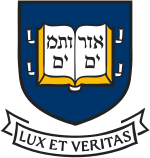**Historical Development of Yale University**
– Founded in 1701 as the third-oldest higher education institution in the U.S.
– Evolution from training ministers to offering humanities and sciences
– Growth into a university with graduate and professional programs
– Expansion into fourteen schools, including Yale Law School
– Notable early figures like The Founders and Elihu Yale
**Academic and Curricular Evolution at Yale**
– Liberal arts curriculum for undergraduates at Yale College
– Influence of Great Awakening and Enlightenment movements
– Establishment of various schools like Medicine, Law, and Fine Arts
– Emphasis on residential colleges and diverse academic offerings
– Notable buildings like Connecticut Hall and developments like the Yale System
**Notable Achievements and Alumni of Yale University**
– Affiliations with 65 Nobel laureates and prestigious award winners
– Notable alumni including U.S. presidents and Supreme Court Justices
– Production of Rhodes, Marshall, and Gates Cambridge Scholars
– Faculty members in prestigious academies and significant endowment value
– Impactful contributions to various fields and academic excellence
**Diversity and Social Changes at Yale**
– Evolution of student societies, curriculum, and athletic culture
– Inclusion of women in graduate programs and independent coeducation
– Landmark cases addressing campus sexual harassment and diversity policies
– Faculty diversity advancements and changes in student body composition
– Shifts in admission policies and promotion of inclusivity at Yale
**Partnerships, Legal Issues, and Alumni in Politics**
– Collaborations with institutions like University College London and National University of Singapore
– Renaming of college to Hopper College and involvement in social movements
– Legal issues related to admissions discrimination and historical ties to the slave trade
– Influence of Yale alumni in politics and U.S. presidential elections
– Leadership structure, notable figures, and impact on higher education development
Yale University is a private Ivy League research university in New Haven, Connecticut. Founded in 1701, Yale is the third-oldest institution of higher education in the United States, and one of the nine colonial colleges chartered before the American Revolution.
 | |
| Latin: Universitas Yalensis | |
Former names | Collegiate School (1701–1718) Yale College (1718–1887) |
|---|---|
| Motto | Lux et veritas (Latin) אורים ותמים (Hebrew) |
Motto in English | "Light and truth" |
| Type | Private research university |
| Established | October 9, 1701 |
| Accreditation | NECHE |
Academic affiliations | |
| Endowment | $40.7 billion (2023) |
| President | Peter Salovey |
| Provost | Scott Strobel |
Academic staff | 5,259 (Fall 2022) |
| Students | 14,806 (Fall 2022) |
| Undergraduates | 6,590 (Fall 2022) |
| Postgraduates | 5,344 (Fall 2022) |
| Location | , , United States 41°18′59″N 72°55′20″W / 41.31639°N 72.92222°W |
| Campus | Midsize city, 1,015 acres (411 ha) |
| Newspaper | Yale Daily News |
| Colors | Yale blue |
| Nickname | Bulldogs |
Sporting affiliations | |
| Mascot | Handsome Dan |
| Website | yale |

Yale was established as the Collegiate School in 1701 by Congregationalist clergy of the Connecticut Colony. Originally restricted to instructing ministers in theology and sacred languages, the school's curriculum expanded, incorporating humanities and sciences by the time of the American Revolution. In the 19th century, the college expanded into graduate and professional instruction, awarding the first PhD in the United States in 1861 and organizing as a university in 1887. Yale's faculty and student populations grew rapidly after 1890 due to the expansion of the physical campus and its scientific research programs.
Yale is organized into fourteen constituent schools, including the original undergraduate college, the Yale Graduate School of Arts and Sciences and Yale Law School. While the university is governed by the Yale Corporation, each school's faculty oversees its curriculum and degree programs. In addition to a central campus in downtown New Haven, the university owns athletic facilities in western New Haven, a campus in West Haven, and forests and nature preserves throughout New England. As of 2023[update], the university's endowment was valued at $40.7 billion, the third largest of any educational institution. The Yale University Library, serving all constituent schools, holds more than 15 million volumes and is the third-largest academic library in the United States. Student athletes compete in intercollegiate sports as the Yale Bulldogs in the NCAA Division I Ivy League conference.
As of October 2020[update], 65 Nobel laureates, five Fields medalists, four Abel Prize laureates, and three Turing Award winners have been affiliated with Yale University. In addition, Yale has graduated many notable alumni, including five U.S. presidents, 10 Founding Fathers, 19 U.S. Supreme Court Justices, 31 living billionaires, 54 college founders and presidents, many heads of state, cabinet members and governors. Hundreds of members of Congress and many U.S. diplomats, 78 MacArthur Fellows, 263 Rhodes Scholars, 123 Marshall Scholars, 81 Gates Cambridge Scholars, 102 Guggenheim Fellows and nine Mitchell Scholars have been affiliated with the university. Yale's current faculty include 67 members of the National Academy of Sciences, 55 members of the National Academy of Medicine, 8 members of the National Academy of Engineering, and 187 members of the American Academy of Arts and Sciences.
